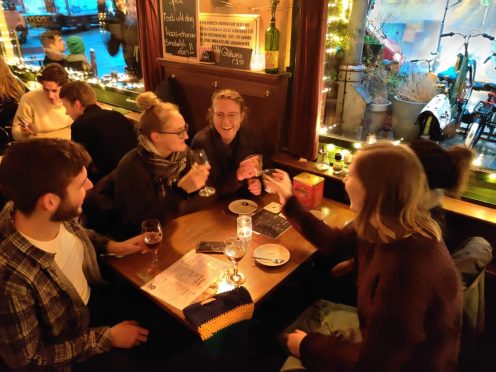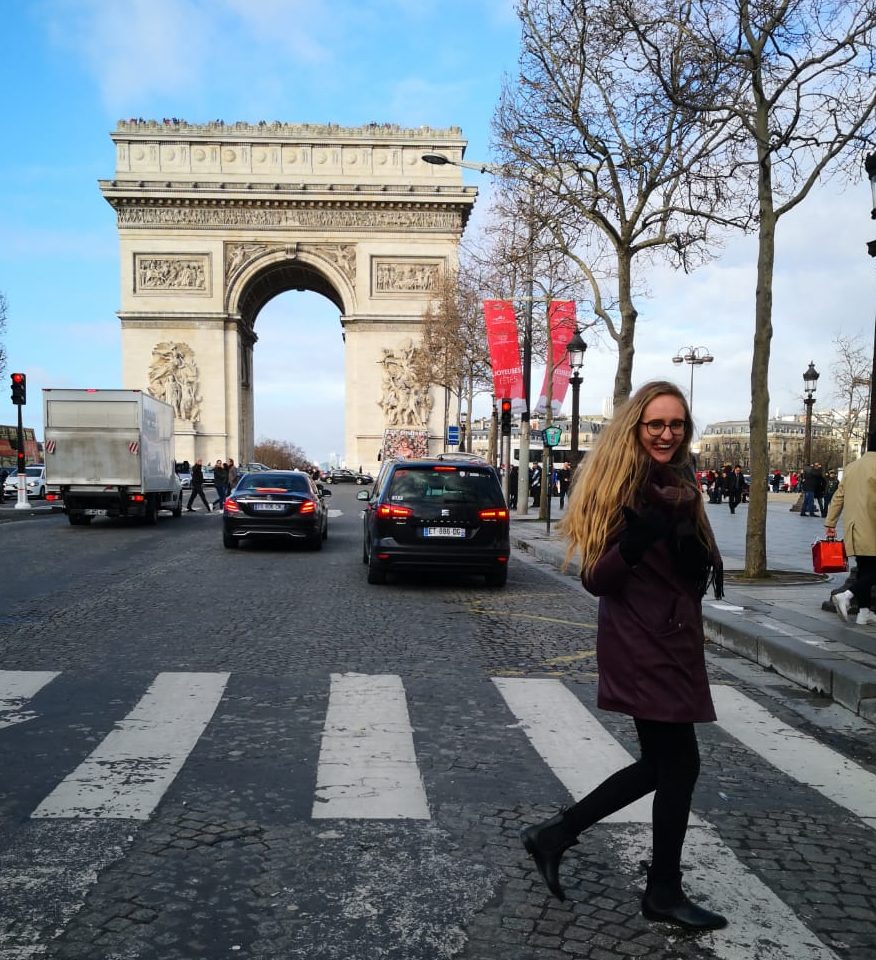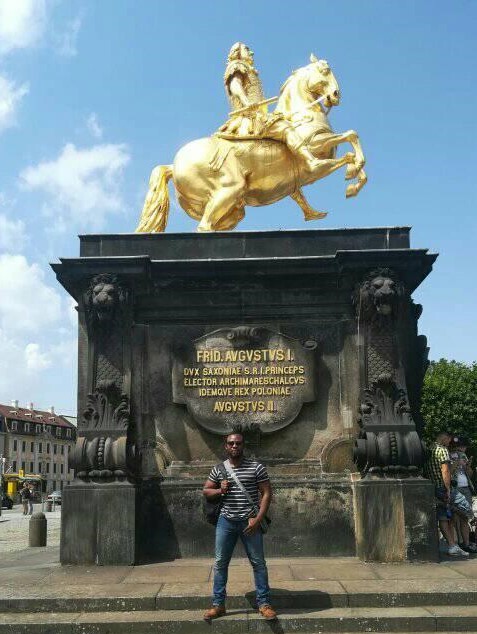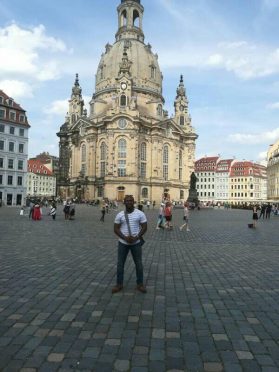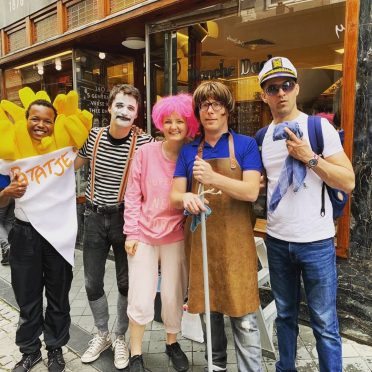Pre-departure:
The first 6 months of your exchange year goes by way faster than one thinks. This is, however, a crucial period where most of the planning and administration of your semester exchange is finalised. It is very important to make sure that you have a “game plan” drawn up to ensure you get everything done in time because before you know it, you will be sitting on the airplane, taking advantage of the free wine ready to kick of your semester abroad.
I decided to work towards qualifying for semester exchange from my first year of law after hearing about it from a friend who was leaving on her exchange later that year. So, be aware that your pre-final year marks are what gets you into the exchange programme and you must meet a minimum requirement. At that time, she was in the pre-departure phase and I remember her advising me that if you are not a “list” person now, be sure to acquire that skill before you embark on your “build-up to the exchange”.
The ‘planning’-phase happens on top of a very full final year programme. In this period, you must apply for your VISA and/or passport and secure your accommodation. Deadlines are very important. Get a huge calendar to put on your wall so that you can manage your time effectively between your academic work and your preparation for the exchange. Do this to ensure you do not miss any crucial deadlines that could possibly stifle your exchange prospects.
The first exciting step is finding the right partner university for you. The most important things to keep in mind is your personal interests, your budget, the language, if the host-university provides financial assistance and the accommodation options available. Vrije Universiteit was my first choice from the start. The reason being that they offered courses that fit my background in science and technology. They also offered financial assistance in the form of a “housing stipend”. The reality of the exchange is that it is very expensive. Housing is extremely expensive and scarce in many of the European countries and without the financial assistance offered by the VU, I am not sure I would have been able to take part in the exchange. Another bonus was that the VU helps you find and secure accommodation, something I know not all partner universities do. This really makes the process of finding suitable housing easier. They offer a variety of options that corresponds to your budget.
There are other costs involved that you will be responsible for e.g. your visa and passport application and administration fees to the host institution. In preparation for the costs I decided to take up part-time work for the 6 months I was still in Stellenbosch. In this way I could finance most of the expenses. With regard to the VISA application, VU also assists you with the initial steps of the application. They handle the application from their side and you only submit all the necessary documentation to them through an online portal that guides you step-by-step.
Experience at Host University:
As I indicated above, I chose Vrije Universiteit based on the courses they offered. I chose courses in the area of technology law. The semesters are also structured somewhat differently to ours back home. One semester consists of three periods. In the first period I chose Internet Governance and Robot and Artificial Intelligence. The third course was a master’s course in technology law that stretched over period 1 and 2. An important consideration when choosing your courses (and your host university) is WHEN you return to South Africa. I had to return in January which means I had to take all my courses in period 1 and 2. Period 1 would run from September – October and Period 2 from October – December. In addition, you must also give yourself enough time to be able to do the self-study work for Company law and Law of evidence.
As the names of these courses suggests, the content very relevant and dynamic. Classes are in the form of seminars which means you always need to be prepared and come to class with an informed and defendable opinion. In contrast to classes of 200 students, here you are in a small room with a maximum of 40 students, so at some point you are going to have to speak up or be asked something. Unlike at Stellenbosch, most of the subject matter dealt with in class, is from prescribed academic articles. So, you spend loads of time reading. I found this refreshing and stimulating because you are exposed to many different perspectives on the topics covered. After a period, there is a week of exams where you then “write-off” the particular courses. This structure was very beneficial because it meant after period 1 exams in October, we could solely focus on Law of Evidence and Company Law exams.
VU is a very modern university. The architecture of the buildings is a stark contrast to the Old Dutch style at Stellenbosch. Modern art and sculptures are exhibited all over campus and this provides a very inclusive learning space.
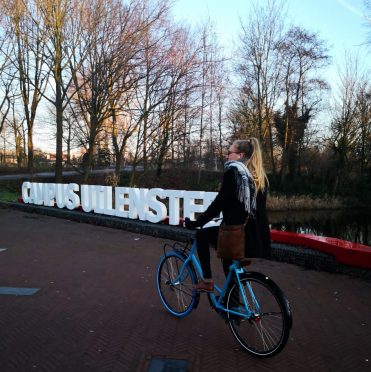
Living in the Netherlands exceeded all my expectations. The moment I got my bicycle (the main form of transport in the Netherlands) you get a sense of independence you cannot easily find in SA. Finding parking or having to pay for parking is never a problem. The fact that a global city like Amsterdam is accessible with a 20 min bike ride still blows my mind. The city is organised and efficient and I will really miss how safe and easy it was to get around in town. Whether by bike or public transport, the city is at your fingertips 24 hours a day. It was one of the most beautiful things biking through the canals of Amsterdam 2 o’clock at night marvelling at the lights and old buildings that surround you. You could either buy a second-hand bike in the Netherlands at a reasonable price or in most of the cities you can rent a bike from “Swapfiets”. A very successful start-up in the Netherlands that rents out bikes and provides you with roadside assistance when you break down or experience difficulties though a simple app on your phone.
Another remarkable aspect of the Netherlands is the fact that you can reach many other European countries with a 3-hour train ride. During my stay I had the privilege of seeing parts of Germany, Belgium and had an incredible weekend in Paris. We mostly made use of a cheap bus service, Flixbus that offer trips to many destinations at very affordable prices.
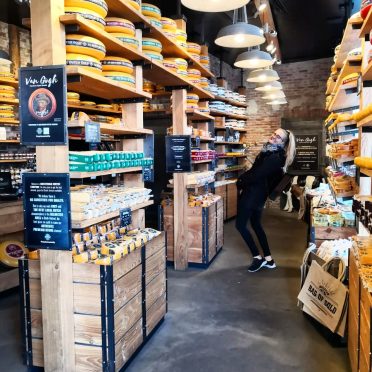
Return to Stellenbosch:
Experiences like this are not without its own difficulties. I had to get used to living with 11 other people in a house where we had to share facilities. This took me out of my comfort zone. However, I feel this really equipped me for my future as I learned a lot of patience, how to deal with multiple personalities and the importance of effective communication. You experience a lot of individual growth which I think is very important as you embark into the next adult phase of work life.
As my exchange ended, I really looked forward to returning to South Africa. I missed my friends, I missed Häzz and I missed the familiarity of my hometown I love so much. I also had a lot to look forward to upon my return. My adjustment back home was therefore not as challenging as they warned.
At this point in time I am happy with staying in South Africa but the prospects of moving to Europe for a few years is not off the table. Life is about exposing yourself to as much as possible and living abroad opens your eyes and broadens your mind by challenging all your preconceptions of the world. Each country experiences their own difficulties and social issues and by engaging with local people you learn a lot about how these countries function and deal with their respective problems. I believe a semester exchange is very valuable in shaping your opinions about your own home country and really makes you appreciate what you have back home.
I encourage everyone who finds themselves constantly curious about embarking on this wonderful journey. Not only do you get a unique educational experience, the skills you learn go much further than just equipping you for life in the legal world. You come back an informed, well-rounded individual and with new energy to take on the next phase of your adult life.
